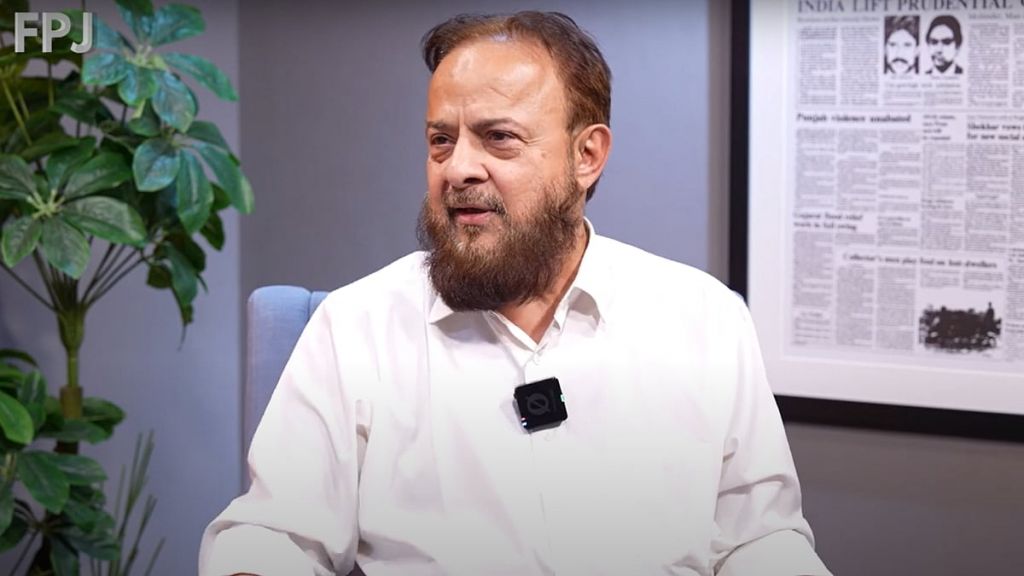
Q: A Joint Parliamentary Committee (JPC) was set up to study the suggestions and recommendations related to the Work Amendment Bill. However, most recommendations by the ruling party were accepted, while opposition suggestions were not. What is your reaction to this?
Zafar Sareshwala: I was never surprised. Parliamentary democracy is all about numbers. The ruling party, with its majority, will pass the bill, regardless of opposition protests. The job of the parliament is to pass legislation, and this is how it works in a democracy. Demonstrations or social media campaigns won’t stop this. The government with the majority will pass what it wants.
Q: Do you agree with the changes recommended in the bill, particularly the mandatory inclusion of non-Muslims and the increased government control over Waqf properties?
Zafar Sareshwala: No, I don't agree with those changes. The Work Board, as it stands, is under government control, with all members being appointed by the government. The proposed changes will further change the very ethos of the Waqf system, and I believe that nothing substantial will change if this bill is passed.
Q: Can you explain how the Waqf Boards currently operate in India?
Zafar Sareshwala: Waqf Boards are found in about 29 states in India, with a Central Waqf Council overseeing them. The members of these boards, including the chairman and CEO, are appointed by the respective state governments. Even the tribunal that governs these boards operates under the judicial system, meaning that the government has control over every aspect of the Waqf institutions.
Q: So, the Waqf system is essentially under government control?
Zafar Sareshwala: Yes, absolutely. Every member of the Waqf Board, including the CEO and chairman, is appointed by the government. This has been the case for over 70 years, and the situation has remained unchanged, regardless of which party is in power. The challenge is that Muslims haven't been able to be represented adequately in legislative bodies like Parliament or state assemblies.
Q: Could you explain the concept of Waqf in Islamic history and its intended purpose?
Zafar Sareshwala: When the Prophet Muhammad (peace be upon him) migrated from Makkah to Madina, the first institutions he established were Waqf and Bayt al-Mal. The primary purpose of Waqf was to create a system where wealth could be collected and used to take care of the poor, orphans, widows, and the downtrodden. The idea was not only to build mosques but to establish a sustainable income source for charity, and this has been the tradition in many Islamic countries.
Q: How has the Waqf system performed in India over time?
Zafar Sareshwala: Over the years, a lot of Waqf properties were donated by kings, and these properties were meant to generate income for the upkeep of mosques and to help the poor. However, the management of these properties has been ineffective. Justice Sachar’s 2007 report revealed that the total revenue generated from Waqf properties should be in the range of 12,000 to 13,000 crore rupees, but the actual income is just around 205 crore rupees. This shows how much potential is being lost.
Q: What do you believe is the primary issue with how Waqf properties are being managed in India?
Zafar Sareshwala: The core issue is poor management. If these properties were managed well, they could generate significant income. Effective asset management requires experts—people who know how to manage resources, create income streams, and sustain these institutions. Currently, the management is not up to the mark.
Q: You’re advocating for the appointment of professionals in charge of managing Waqf properties. Do you think this change will happen now with the Work Amendment Bill?
Zafar Sareshwala: I hope so. I believe the government should appoint experts and professionals who specialize in asset management. Across the world, Islamic funds and Waqf properties are managed by the best professionals available. This could transform the system and create significant benefits for the community.
Q: The ruling party, especially the BJP, claims that Waqf Boards have been encroaching on government land and that these properties should now be released. What is your opinion on this argument?
Zafar Sareshwala: Yes, in many cases, Waqf properties are directly under government control, and the government is involved in the appointment of board members and even the management of these properties. The claim that Waqf Boards are encroaching on government land is not new, but if the boards are disbanded and managed properly with competent people, it could actually be a good move. However, there is likely to be political chaos as the opposition is already up in arms over the changes in the JPC recommendations.
Q: Finally, what is the way forward for Waqf management in India?
Zafar Sareshwala: The way forward is clear: appoint professionals who understand asset management and Islamic finance. If we want the Waqf system to serve its original purpose, it’s essential to have the right people in charge. This will not only help in maintaining the mosques but also ensure that the poor and needy benefit from the income generated by Waqf properties.